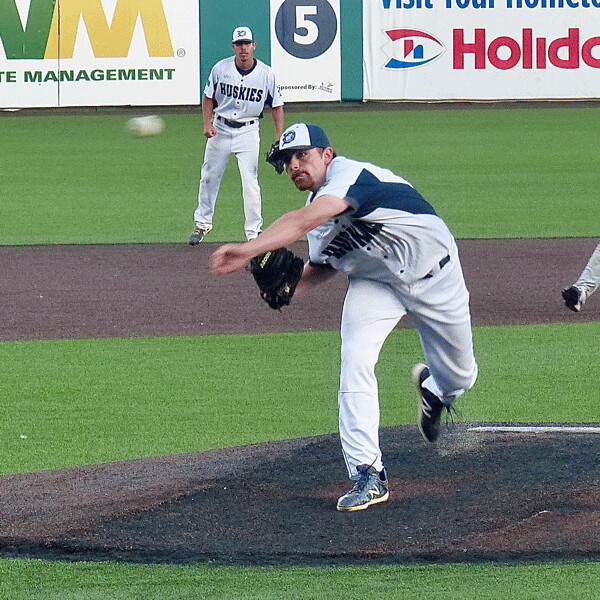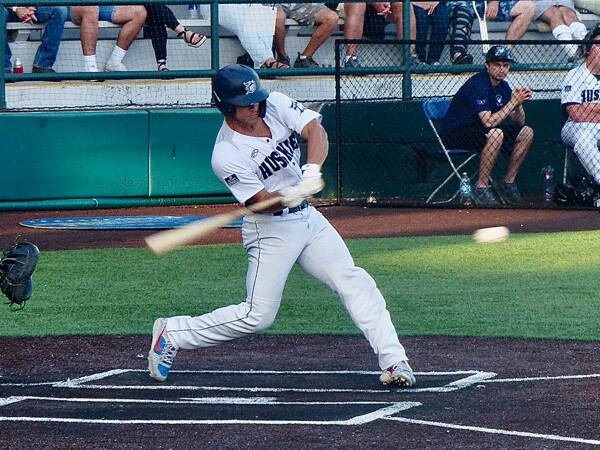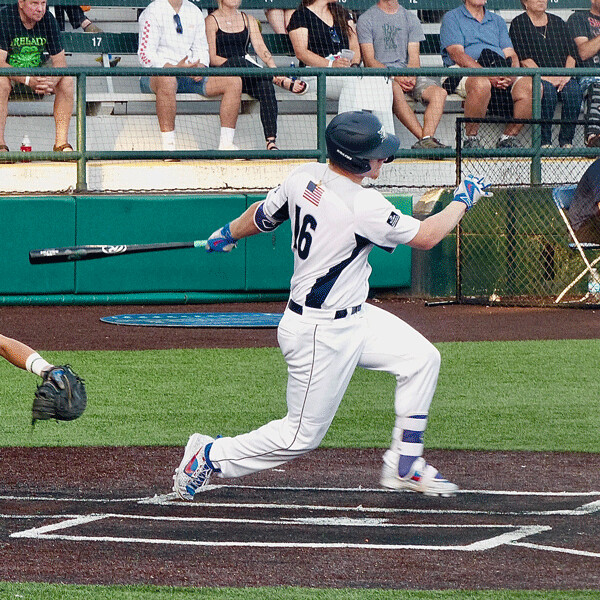News & Articles
Browse all content by date.

Whatever happens the rest of the summer, it’s been a fantastic season to be a Twins fan. Naturally, after so many bad years in succession, we’re entitled to be a little paranoid, stopping short of anticipating and practically expecting, the tentacles of doom to pluck disappointment out of this very pleasant summer.
As a sometimes professional critic, and a long-term coach and manager of baseball teams of all ages, I am reluctant to accept the blind faith in analytics that seem to be the motivating force for Twins manager Rocco Baldelli. I was always a soft touch for a pitcher who was getting pounded but could make a convincing case that he should just try one more inning. But I also took pride in having prophetic hunches on when to make a move and when to stay with whoever is doing it.
Baldelli never gives his guys that chance, it seems, but I think he is too quick to abandon what he sees from his dugout pitch in order to follow some computerized analytic. Now, we don’t expect our lads should win every game, and in fact some close losses in a well played batch of games can be very entertaining and make you appreciate the victories even more.
But in the past week, Baldelli is driving me crazy with moves that have been costly, lucky, unlucky and maybe even mistakes. In each of the following cases, I will reinforce my feeling about second-guessing. I hate it, and I try to always avoid it. Anybody can watch a strategic move, and if it works say nothing, but when it fails, complain about bad judgement. Because of my feeling for pitching, I express my feelings enough make my wife, Joan, tell me to shut up, but I do it before the incident happens.
First we go back to July 31, at Miami, with Jose Berrios pitching. His last two games, he wasn’t razor sharp, but he battled through a pair of over-100-pitch outings, so when he was on top of his game at Miami, I was sure he was headed for the first complete game by a Twins pitcher this season. He retired the first 12 batters he faced, then gave up a dribbler down the third base line, and a soft single to center in the fifth. He came right back to retire the next nine.
After he had completed seven innings, the Twins led 7-0 and he had a 2-hitter, with no walks and 11 strikeouts, and he had thrown only 81 pitches. But Baldelli pulled him for a pinch hitter in the eighth. I occasionally enjoy tuning in satellite radio to hear the opposing broadcasters, just for a change of pace, and I had done that in this game. The Marlins announcers were gushing about how Berrios was in such command that he was obviously headed for a shutout and the complete game. So in the last of the eighth, the broadcaster said “Look at that,” and said he couldn’t believe it, but Nelson Cruz was in the on-deck circle to hit for Berrios.
The analytics didn’t say anything about 12 strikeouts being Berrios’s career high, or he might have reconsidered. But I moaned at the move because the Twins bullpen — up until Taylor Rogers — tends to find ways to blow leads, even though 7-0 was pretty substantial. Someone named Sean Poppen came in, got through one inning, then, in the ninth, gave up three straight singles to load the bases, and a grand slam to unload them. Rogers came in and got out of further trouble for a 7-4 victory, but I didn’t want to be right in this case. Why not leave Berrios in, and if he walks somebody or gives up a hit, pull him, but the way he was going it would have been a complete game shutout with 15 strikeouts.
Next day, August 1, still in steamy Miami, and Michael Pineda was the starter. Pineda and Martin Perez have been great surprises for the Twins, bolstering the Berrios-Kyle Gibson-Jake Odorizzi trio of solid starters. Pineda didn’t have his best stuff, but he scattered seven hits, walked one and struck out three, in six innings, and he only threw 80 pitches while the Twins took a 4-1 lead. Baldelli pulled him and went to the bullpen. “Oh, no!” I said. Joan rolled her eyes.
Baldelli does one other thing I am curious about. He will bring in three or four relievers in a game and never let any of them go more than one inning. My gut feeling is you bring in a reliever, and if he does well, let him go two or even three innings, then take the next day off. My concern is that if you use four relievers for one inning each, what are the odds that all four of them will be sharp? Not good, I say.
He brought in Tyler Duffey for an inning, and he overcame two walks with three strikeouts. Next came newly acquired Sergio Romo, who breezed through the eighth, so it was still 4-1 going into the last of the ninth. Baldelli sent in Sam Dyson, who had just arrived at the ballpark in mid-afternoon after being acquired from the San Francisco Giants.
Getting in at 3 p.m. after a traumatic day of travel seems unfair. Dyson, who doesn’t walk many, walked two, and gave up two hits, giving up three earned runs without getting anybody out, and blowing the 4-1 lead. The effort gave him a 99.9 earned run average with the Twins. Rogers extricated the Twins from further damage with three strikeouts, and the teams went to extra innings 4-4. Ryan Harper pitched a harmless inning, and the last of the 12th was up to Cody Stashak, and leadoff batter Harold Ramirez worked the count to 2-2, then hit one into the left-field seats. Twins lose, 5-4. Blowing the 4-1 lead was, it seemed to me, easily avoided. The analytics lost one.
The Twins came home, and Perez pitched the start of the homestead against Kansas City. Perez struggled, going only 5 innings, and among the seven hits he yielded were three home runs. Not good, although he walked none and struck out three. He left the game leading 6-5, but Lewis Thorpe gave up the tying run to make it 6-6, before Trevor May relieved to get the third out in the top of the seventh. In the last of the seventh, the Twins erupted for five runs to shatter the 6-6 tie and take 11-6 command.
Sam Dyson, however, tried to get through the eighth and was tagged for four hits and three earned runs, but he got one called strikeout, and then Romo came in to get the third out and pitch an uneventful ninth. The good news was that the Twins managed to blow one lead and almost another but won 11-9. Dyson, getting one out in his second appearance and second inning of work, lowered his ERA to 81.0. And May, who got the third out on the only batter he faced, got the pitching victory when he was still the pitcher of record when the Twins scored five.
The Twins bullpen doesn’t turn every lead into a late-inning adventure. They won the August 3 game 11-3 when Gibson went into the seventh and improved to 11-4, and they took the finale of the series 3-0 by inserting Deven Smeltzer, who gave up only two hits in six innings of shutout work.
If the bullpen gets sorted out, and Romo should help there, the Twins should make this a stirring stretch drive, swatting home runs right and left.
Then there are the Houston Astros, who right now are my favorite to win the World Series, and could put on an amazing show if they face the Yankees in the playoffs. The Astros had the American League’s best 1-2 pitching combination in Justin Verlander (15-4) and Gerrit Cole (13-5), also have Wade Miley (10-4), and they added Zack Greinke (10-4) as a fourth ace starter. Just before the trade deadline, the Astros also added Aaron Sanchez from Toronto, where he started the season 3-1 before losing 13 straight games. He joined Houston at 3-14 and promptly threw the first six innings of a joint no-hitter at Seattle!
That would mean the Astros, who have a solid bullpen, have a five-ace staff of starting pitchers.


HUSKIES DOWN TO IT
Frankly, I have never figured out all the intricacies and nuances of the Northwoods League. Our Duluth Huskies had a real struggle and often demonstrated some pretty lousy baseball during the first half of the split season. Fortunately, they play a split schedule, so everybody starts over 0-0 in the second half, and the Huskies have been much better, and much more entertaining, in the second half.
The college-eligible players who come to the Northwoods League are apportioned out by some magic formula, and certain Division One colleges send players to certain teams. Sometimes, players come with limiting rules on how much they can pitch, how much they can play, etc. They are billeted with families in the home cities they play for, and that makes it neat.
But among the rules are limitations in roster sizes. The Huskies, for example, have made some wholesale shifts in getting players to replace those who have had to leave to report back to college, or whatever. Some have major family trips that take priority.
The news explosion last week was that the Huskies, who are in a great battle for the second half pennant, and therefore a place in the post-season playoffs, is that they made a player adjustment that seemed pretty creative when they took a position player and shifted him to the pitching staff. Teams are allowed 14 position players, but it is determined by a certain date. On that date, the new pitcher was still a position player, making the Huskies out of compliance with the rule. The league decided punishment would be to remove five victories from the Huskies total. That is a jolt that may or not be unfair, but the Huskies went to Thunder Bay and got swept.
The regular season ends this weekend, with two games against Waterloo. We don’t know if the Huskies can lift themselves up and still win it, or not. But we’ll soon find out.

| Tweet |


